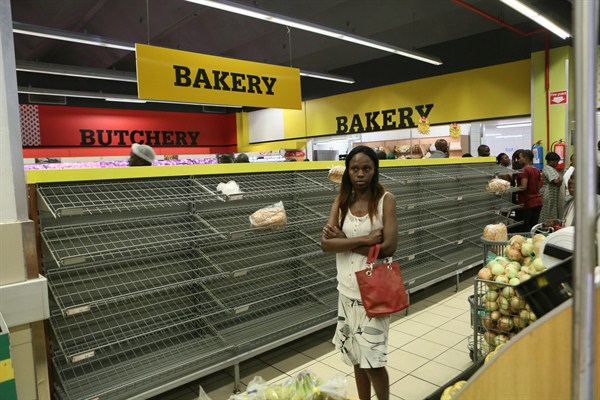Editor’s Note: Every Friday, WPR Senior Editor Robbie Corey-Boulet curates the top news and analysis from and about the African continent.
When he became Zimbabwe’s interim president following Robert Mugabe’s ouster last year, Emmerson Mnangagwa immediately tried to focus the world’s attention on his ambitious economic agenda. He repeatedly declared that, following years of isolation under Mugabe, the new Zimbabwe would be “open for business.” After being named the winner of July’s presidential election, he spent part of his inauguration address urging citizens “to unite as a nation and grow our economy,” offering a vision of Zimbabwe as a middle-income country with ample jobs and declining poverty.
Last Friday, his finance minister, Mthuli Ncube, made a surprising announcement: A “rebasing” of economic data had revealed that Zimbabwe’s GDP was actually 40 percent larger than earlier figures indicated. Zimbabwe’s future as a middle-income country was already here.

